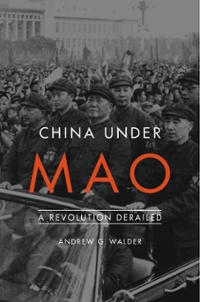Question
explain what's the difference between the two answers and lesson the question taught original question: A few years ago, the Boston Globe reported that the
explain what's the difference between the two answers and lesson the question taught
original question:
A few years ago, the Boston Globe reported that the city of Boston planned to spend $14 million to convert the FleetCenter sports arena and entertainment center into an appropriate venue for the Democratic Nominating Convention (DNC). The city engaged Shawmut Design and Construction in a contractual relationship to complete the work, which was supposed to start 48 days prior to the commencement of the DNC on July 26. However, when negotiations between Boston's mayor and the police union broke down, the Boston Police Patrolmen's Association took to the picket lines surrounding the FleetCenter and prevented construction crews from beginning the work. The Globe reported that "a truck attempting to deliver steel turned around after a crowd of union members stood at a chain-link gate in front of the arena, shouting 'back it up,' and 'respect the line, buddy.'" Moreover, the Globe reported that "On-duty police officers, who had been instructed to prevent pickets from restricting access, did not intervene." Given the tight construction schedule, construction delays reportedly cost about $100,000 per day. Identify the principal-agent problem in this situation. Did the mayor and the city of Boston face the classical "hold-up problem" or another problem?
Textbook answer: In society, the police and the mayor actually work for the People. The People own the city of Boston and they elect Mayors and hire Police to work for them (manage and protect the city). Mayors and police and then "agents" of the public and the People are "principals". When the police union blocked the construction in order to increase their own wages/benefits, it results in extra costs to the People. Remember, that extra $100,000 cost is paid by the city which means its paid by the People. The higher contract wage for police officers is also paid for by the city (which again is by the People). So in this case, the agents, (mayor and police), are working in their own interest at the expense of the People.
As far as hold the contract, this is a classic hold-up. The police say that in order for them to continue working, they need to get their raises. Since not giving a wage increase would cost the city an extra $100,000 a day anyway, the city may find it reasonable to just pay the wage increase (give in to the negotiations).
Second answer:
In this situation, the principal-agent problem exists between on duty police officers (the agent) and the city officials who hire them (the principals). On-duty police officers had to stop picket lines from blocking access to workers. Police union members engage in opportunistic behavior to improve their bargaining power. The city has committed $10 million to host theft,. and the police union has attempted to take advantage of this specialized investment Therefore, the sty is facing the "hold-up problem" There is a problem of written contractual agreement When the city of Boston got into a contract with Design and Construction firm, there were many unforeseeable events that were not explicitly defined.
Step by Step Solution
There are 3 Steps involved in it
Step: 1

Get Instant Access to Expert-Tailored Solutions
See step-by-step solutions with expert insights and AI powered tools for academic success
Step: 2

Step: 3

Ace Your Homework with AI
Get the answers you need in no time with our AI-driven, step-by-step assistance
Get Started


